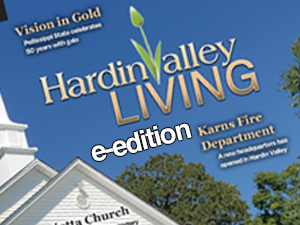Doctor’s own drug addiction shared as RCF featured speaker
Rotary Club of Farragut addressed the opioid crisis in Tennessee and closer to home by inviting a Farragut doctor as its featured speaker who personally experienced drug addiction.
“You’ve got doctors and friends right here in Farragut who are addicts, and you don’t even know it,” said Dr. Stephen Loyd, a Farragut internal medicine physician, during his address to RCF at the club’s weekly noon meeting Wednesday, March 1, in Fox Den Country Club. “The percentage of doctors who are addicted is higher than the general population.”
Loyd “has walked the walk and he talks the talk as an addict, as a physician,” said RCF member Dr. Charlie Barnett, a colleague of Loyd’s. “He is probably Tennessee’s No. 1 physician when it comes to addiction, opiate use and chronic pain, guiding the judiciary in how to work with addicts.
“He’s also one of our nation’s leading doctors, too, when it comes to the huge opioid settlement. I don’t think anyone in this region, state or nation knows more about addiction,” Barnett added.
“Everyone in here has had friends, family affected by addiction. And if you try to deal with addiction, you know you can’t help them. You cannot help them until you understand their brain.”
Loyd was in his early 30s in the final year of his residency program at East Tennessee State University when he became addicted. He recalled it started when he took one half of a hydrocodone pill following a dentist appointment.
Within three years, he was taking 500 mg of Oxycotin a day.
However, he had a wake-up moment when a patient overdosed and he realized, “I was taking more milligrams of acetaminophen every day than my patient had overdosed on,” Loyd said.
“ A couple months after this, my dad noticed a big change in me and intervened,” he added. “I was lucky. I was able to get world-class treatment” many people cannot afford.
Now 55 and in his 19th year of recovery, he talks to groups, such as Rotary Clubs, so people will understand addict’s motivation to misuse drugs.
He said people are designed to survive and see food and air as survival.
But for drug addicts, drugs are their food and air.
Loyd compared the factors — genetics, trauma and availability leading to addiction — to a slot machine.
His life had all three factors. He had family members who were addicted to drugs and alcohol; he was beaten by his mother, who was bipolar, and molested by his uncle as a child; and being a doctor, he had drugs readily available.
It also is characterized by the body’s pleasure system.
Looking at Rotary’s Four-Way Test, he said that is what he needs to teach his patients.
After his RCF visit, Loyd headed to Wilson County Jail. He goes to prisons and jails, working with inmates. “I’ll try to save ’em where and when I can,” Loyd replied.
The club then invited Karen Pershing, Metro Drug Coalition executive director, as its Wednesday, March 8, featured speaker.
(Part two on RCF’s drug abuse focus, featuring Pershing’s speech, will run in next week’s issue).


